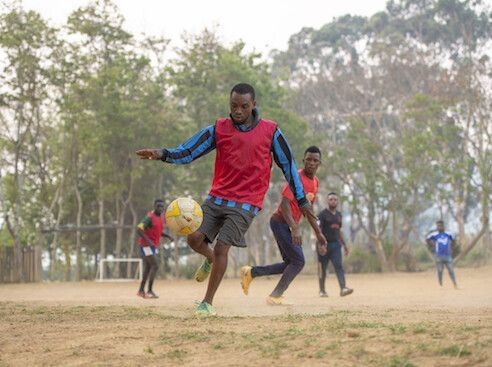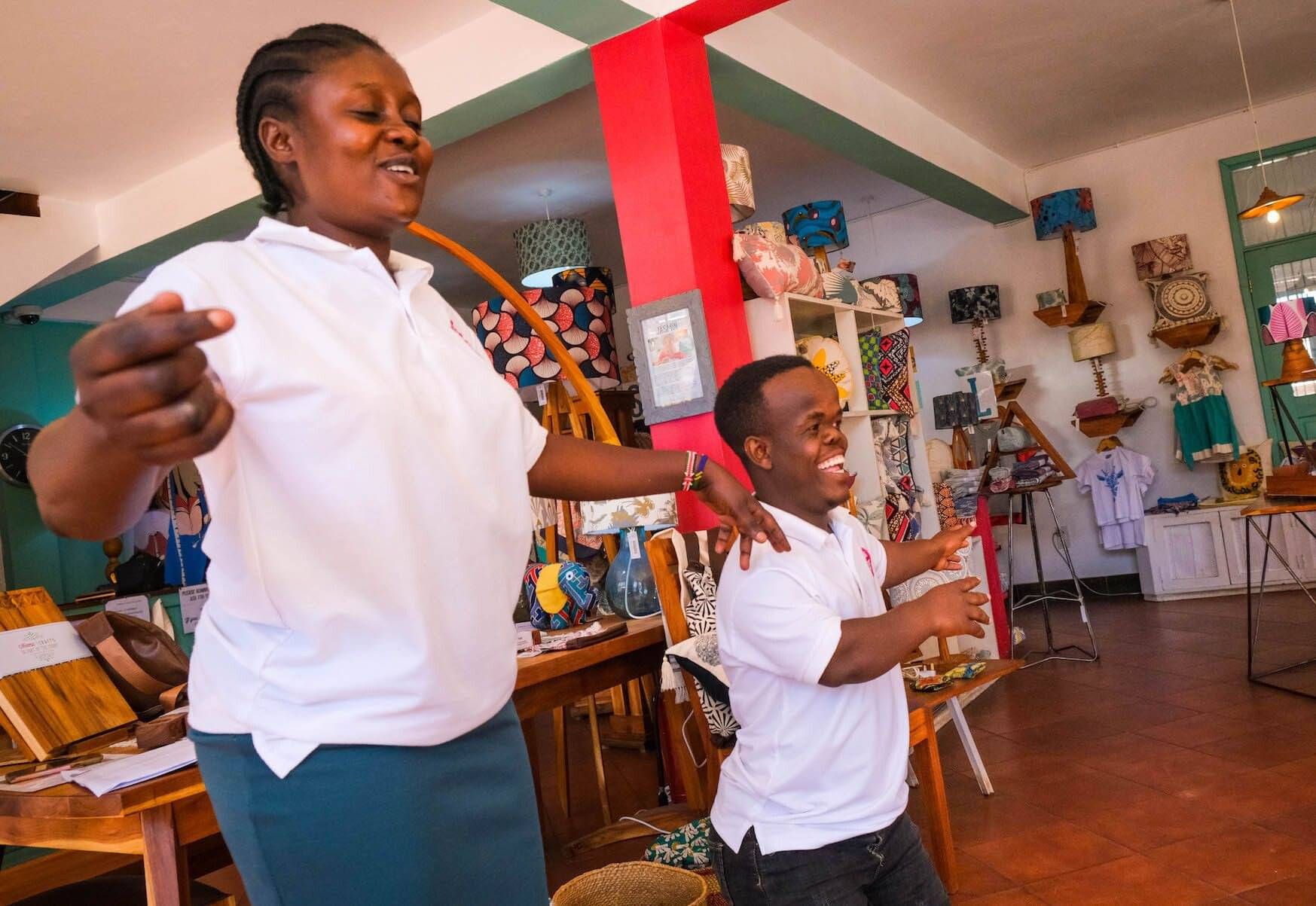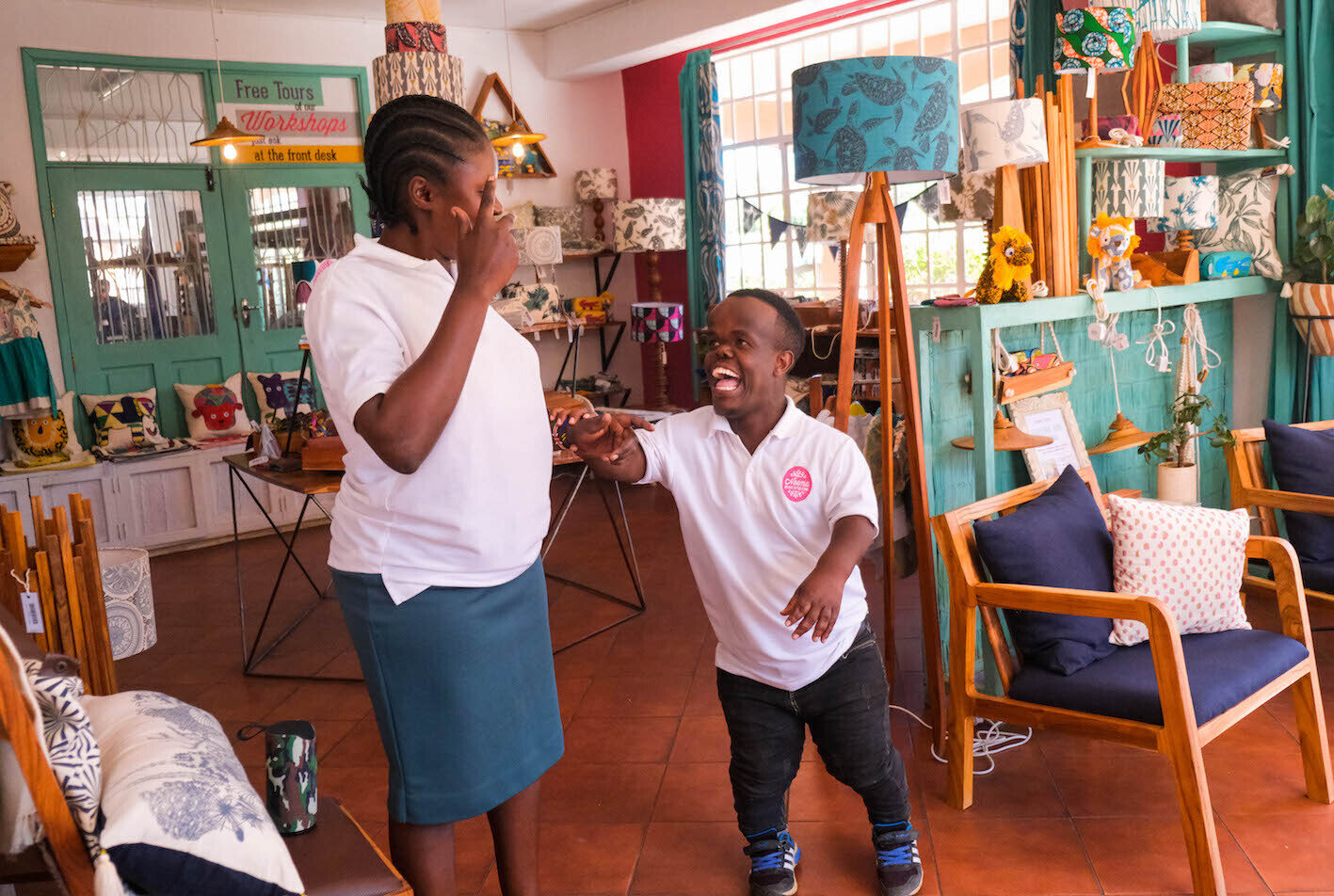The Story in Full
The Neema Crafts Centre was started as a project of the Anglican Diocese of Ruaha in Iringa, Tanzania to meet the training and employment needs of the many people with disabilities in the area.
10% of the population was classified as having a severe disability in the previous national consensus. The Iringa region had one of the highest rates in the country and was also one of only a few regions with no projects then in existence to cater for the needs of disabled people. After a needs analysis was carried out, the majority of people with disabilities in the region were found to be living in extreme poverty and, due to the stigma attached to their disabilities, suffered exclusion from opportunities available to able-bodied people.
In 2003, three young deaf lads, Josephat, David and Godfrey started to learn how to make hand-made paper from sustainable resources such as maize leaves, elephant dung and recycled paper. This could then be used to make cards, books and other popular crafts that were then sold to tourists. Within the first twelve months the number of deaf people trained and employed at the workshop had risen to fifteen, and ten people with physical disabilities had been given training and employment in bead-work. By the end of the second twelve months a weaving workshop and café had been added, and the number of trained employees had risen to over seventy people.
In 2007 a micro solar panel workshop, candle-making area and recycled glass bead making workshop were added.
In 2009 'Neema Crafts Workshop' became 'Neema Crafts Centre for People with Disabilities' and moved to new purpose-built premises, adding a ceramics workshop, crafts shop and a vital physiotherapy department in the process, as well as conference facilities, a larger restaurant and an internet café to help boost revenue and draw more visitors into the Centre.
In 2011 a ten-bedroom guesthouse was opened at Neema Crafts by the then British High Commissioner to Tanzania, Diane Corner. This meant that our already enthusiastic visitors could stay with us and, through their custom, continue to support the disabled population of Iringa. The guesthouse is a joint venture between Neema Crafts and the local Mother’s Union (known as UMAKI) and employs deaf and able-bodied staff.
In 2012 a carpentry department was set-up employ a deaf and disabled artisans. They produce furniture, turned lamp bases, lampshades and items carved in the Zanzibari style.
In 2013, for the first time, the businesses of Neema Crafts could say they were self-sustaining with trainees’ wages and overheads no-longer dependent on charitable giving. Instead the disabled artisans, cooks and assistants were self-reliant dependent only on revenue from their hand-made products and services.
In more recent years, Neema Crafts partnered with another organisation to open a shop in Dar es Salaam, accommodating the high demand amongst expats and tourists. This was a great source of income for the centre during Covid-19 and has also created more awareness of the project in East Africa.
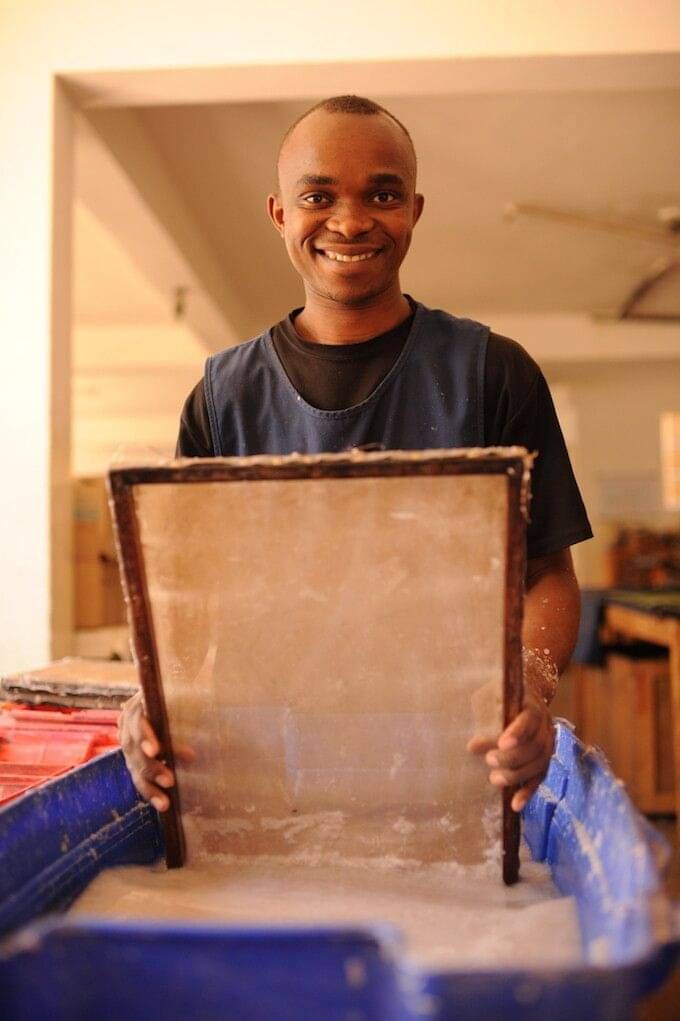
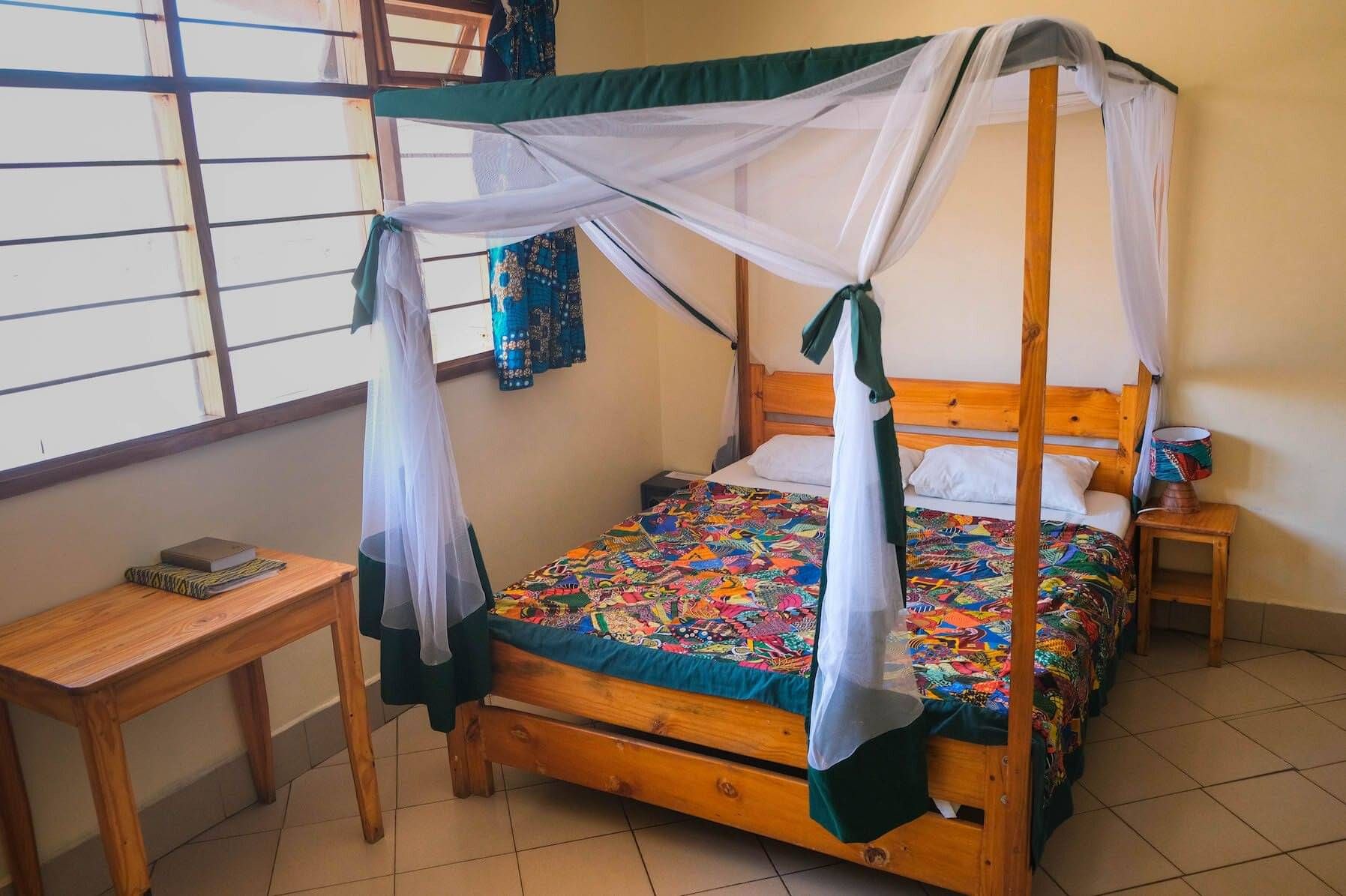
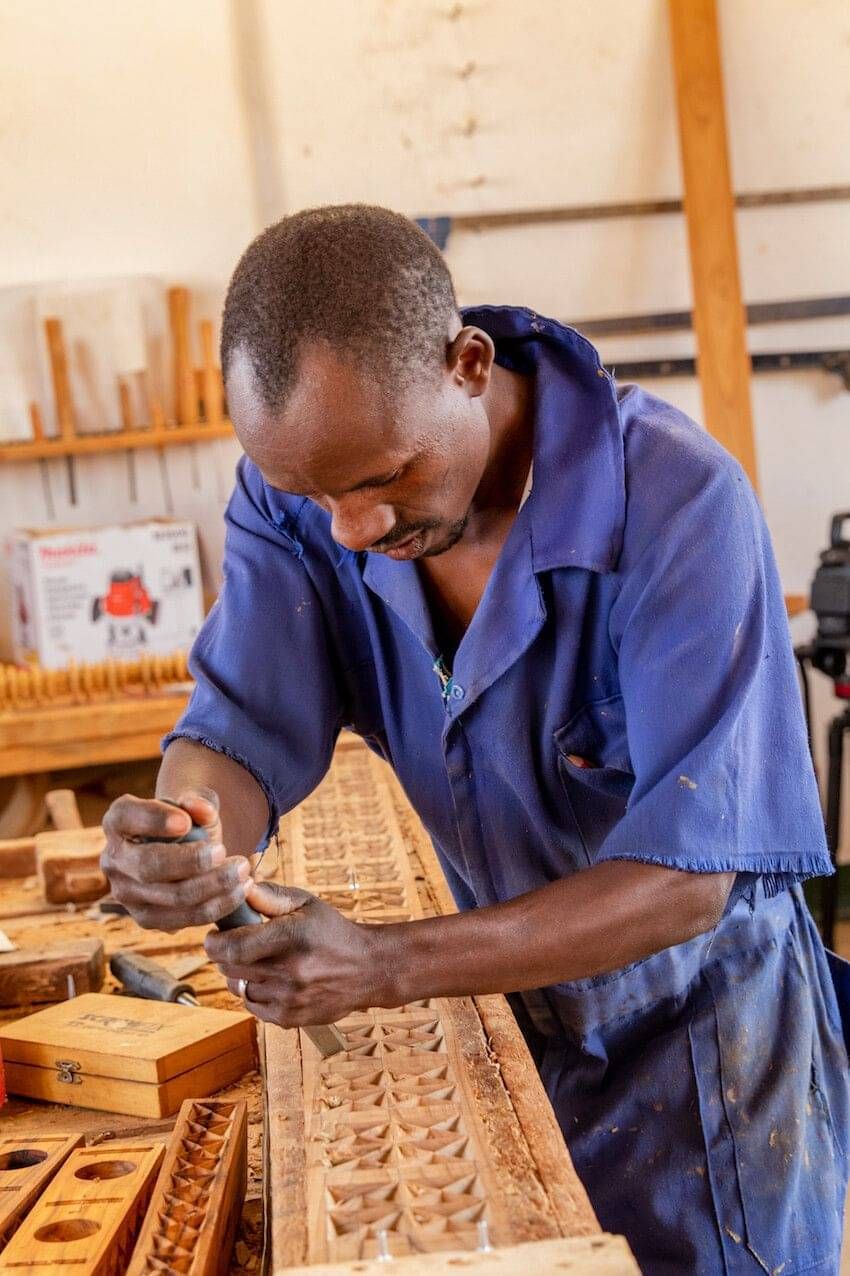
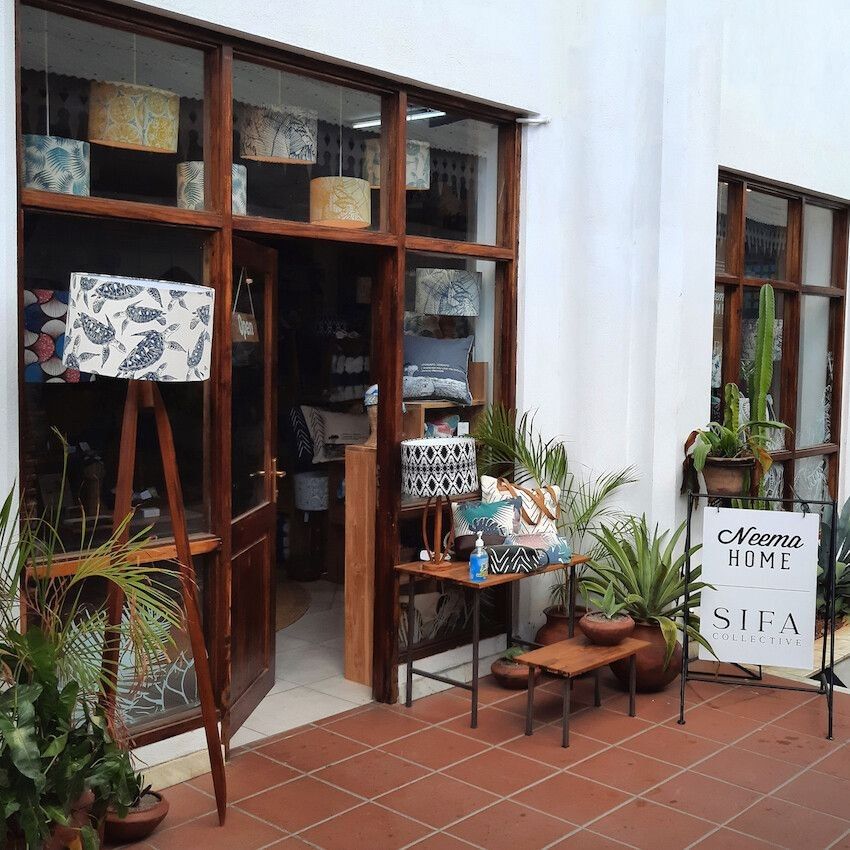
Changing Attitudes
Neema Crafts continues to be a beacon of hope for disability in the region. Through offering employment it lifts many participants out of extreme poverty and imparts greater self-esteem. We are delighted that a number of participants have enough confidence take the step out of Neema to start their own enterprises, having received entrepreneurship training and a small grant from the project.
Public attitudes towards, and perceptions of, people with disabilities have also been positively changed as local visitors to the workshop (who have included high-level local government officials, local policy makers and employers) see how capable people with disabilities are when given the chance.
Neema Crafts has become a flagship project for disability in Tanzania, and through this, it has been able to highlight issues of disability to a wider audience. In 2008, our staff were given the great honour of holding the 'Mwenge', the freedom torch and national symbol of Tanzania.
We have also been recognised many times by the national media, having been written about in the BBC, The Guardian and Kwanza Jamii newspapers. And Susie Hart was honoured for her incredible achievements by receiving both the ‘Window to the World’ Woman of the Year award in 2010 and the MBE in 2012.
More than a place of work
As well as trade and business skills, the Neema Crafts Centre endeavors to develop life skills amongst its trainees by offering holistic training in issues such as HIV Aids, sexual health, preventative health care measures and managing personal finances. The centre also has its own chaplain who is available for counselling and advice.
One of Neema’s greatest assets is its strength of community. As a result of the network we now have of deaf and disabled participants, the community is able to advise and support other families with disabled members. It has formed deaf and disabled sports teams, dance troupes, church congregations and even set up its own credit and savings scheme, the finance from which is administered autonomously.
Every day that Neema Crafts opens its doors, we thank God for sustaining the project through bringing us customers from across the globe, and for providing our participants with opportunities to shine in their community. We hope that having read this you too can be part of our on-going story.
